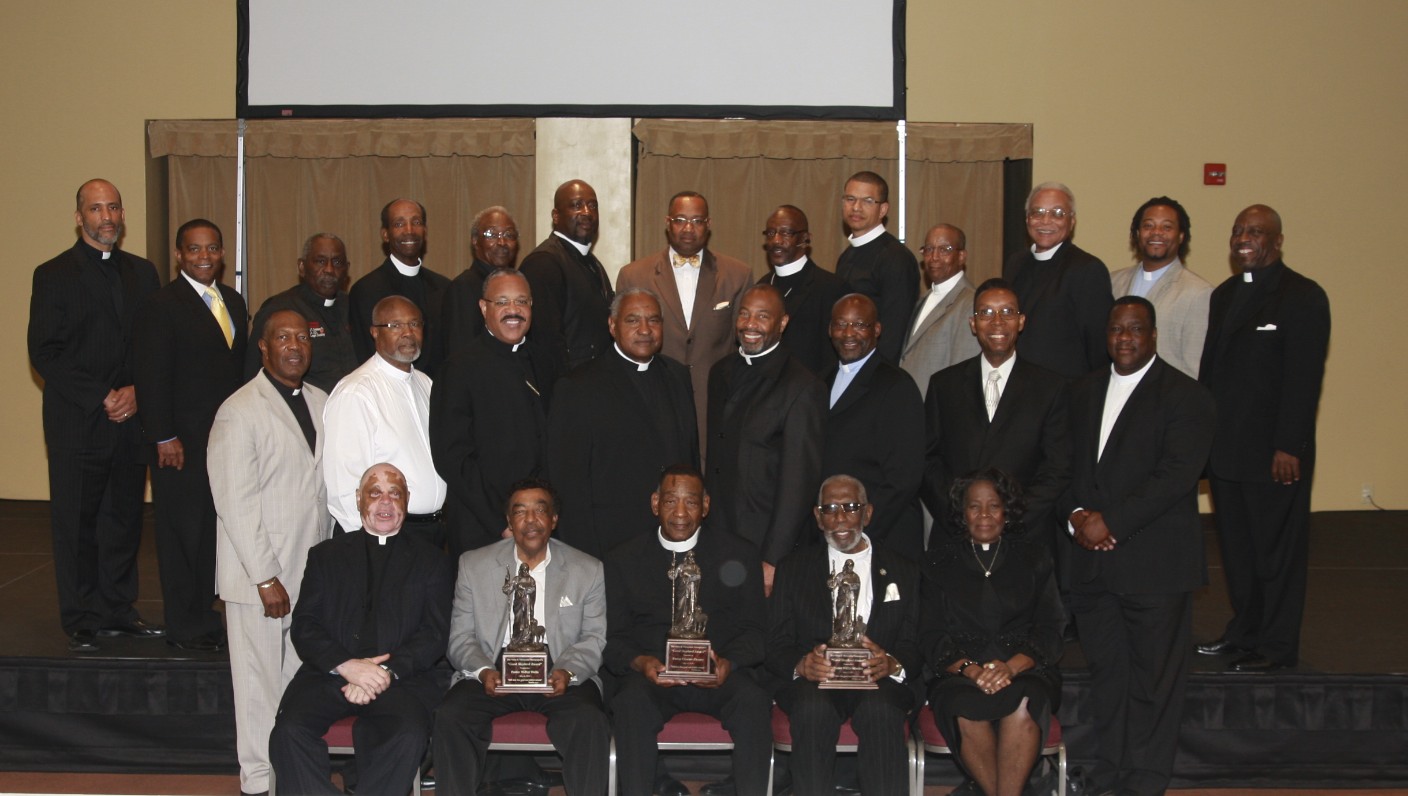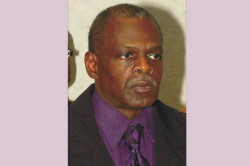 Race and ethnicity have always played a major role
Race and ethnicity have always played a major role
After years of non-action and adverse action from differing political groups, persuasions and governmental entities, the issue of immigration almost immediately gained more serious national attention following the re-election of President Barack Obama.
While most people think primarily of Hispanics and Asians when the topic of immigration comes up, there are number of people of African descent that fall into the immigrant population as well.
“Blacks only make up around 10 percent of the immigrant population,” said Opal Tometi of the Black Alliance, citing United States Department of Immigration statistics. “Yet, Blacks are five times more likely to be detained or deported.”
Tometi spearheads a network of groups that address issues of immigration and other such rights for Blacks, and does so on a worldwide basis.
The immigration issue has seen many changes and developments over the years, but it has typically been driven by a key interest—American corporate and business needs.
Corporations have always sought to exploit cheap labor while American laborers have sought better wages as immigrants have challenged them for jobs.
Race and ethnicity have often been a bedrock component of American immigration, including the slave trade, the Chinese railroad workers, and Hispanics in agriculture. Laws tended to change once usefulness has been absorbed or because of challenges.
In 1790, Congress passed a law allowing the naturalization of free White persons, a racial requirement for American citizenship, which remained on the books until 1952. In 1907, the U.S. and Japan entered into a diplomatic agreement—not bound by law, yet adhered to—where Japan agreed to only emigrate educated or business-engaged Japanese, and Japan would also withhold skilled and unskilled laborers, along with those affected by mental or physical disabilities. President Theodore Roosevelt agreed to desegregate California schools in exchange. This reversed a practice where Asians in Northern California were educated separately from the larger student population much as Blacks were in the South.
The Immigration Act of 1917 added a literacy test and designated Asia as a barred zone, allowing only Japanese and Philippine immigrants. A barred zoned limits the number people allowed to come into the U.S. from a certain area.
Race was further embedded in immigration law in 1882 when Chinese were prevented from entry into the U.S. for decades by the Chinese Exclusion Act. The act was repealed in 1943 during World War II as the nation warred against the Germans and Japanese because, some historians say, Chinese were needed for military intelligence against Japan.
At one time, American immigration was limited to a certain number of people per year pursuant to federal law, and was considered as enforcement and aid to American culture, democracy, national defense and security.
It was not until the Immigration Act of 1965, which was encouraged and only made possible by the Civil Rights Movement and the ensuing Voting Rights Act of 1965, that race-based immigration admission was replaced by criteria that involved skills, profession or by family relation to U.S. citizens.
Currently, the White House and the Senate Bipartisan Committee on Immigration Reform have both drafted plans that include an eventual pathway to permanent citizenship for the thousands of people who entered the U.S. illegally, but they don’t yet agree on details. Both do, however, agree that applicants pay fines, taxes, wait in line behind current green-card applicants, and learn to speak English.
Many hardline Republicans, however, have been less willing to consider permanent citizenship.
The Bipartisan Policy Center, a quasi-outside governmental advisory group (a think tank that advocates for bipartisan solutions to government problems) has enlisted Republicans Condoleezza Rice, former U.S. Secretary of State and former Mississippi Gov. Haley Barbour, to team with Democrats including Henry Cisneros, former HUD Secretary and former Pennsylvania Gov. Ed Rendell.
The committee is chaired by Rebecca Talent, former chief of staff to Sen. John McCain (R-Ariz.). This bipartisan panel will also look at issues such as increased border enforcement, issuance of green cards for students that graduate with degrees in science and math in effort to draft further detailed proposals on which both parties can agree. It will forward recommendations to Congress and the president.
Black immigrants largely have not been mentioned in the immigration discussion, because the emphasis has been on immigrants of Hispanic and Asian heritage.
Many obvious and obscure issues surround immigration reform that include the rights of dreamers (the American-born children of illegal immigrants) and farm workers, who make up a large portion of the immigrant population. Other issues surround students who may or may not be in America legally, some who arrived with their parent or parents as babies or small children, some who came on their own as minors, and those who are in America on temporary status.
“The time for immigration reform is long overdue, and we applaud the president . . . for proposing a common sense, compassionate, comprehensive immigration reform plan that provides a pathway to citizenship for 11 million undocumented immigrants who currently reside in the United States,” said American Federation of Teachers (AFT) President Randi Weingarten in a statement. “The president’s blueprint for reform and the U.S. Senate bipartisan framework shows an understanding that our nation has always been enriched by immigrants and strengthened by the diversity they bring. His proposal strengthens our borders, ensures (that) immigrant children can go to school without fear, keeps families together, and promotes safe and secure jobs for all workers. His continued support of the Dream Act gives dreamers the chance to dream by giving hard-working students who play by the rules an opportunity to pursue a college degree.”
While the subset of issues regarding immigrant children has many different facets, dreamers have a good outlook because most Americans are empathetic to children and the Dreamer cause. Some other groups have not received the same attention or empathy.
“The president’s immigration reform proposal contained no surprises,” said Black Alliance for Just Immigration (BAJI) Executive Director Gerald Lenoir in a published statement. “President Obama proposed a broad legalization program with few details. It is very positive that he includes agricultural workers in the legalization program, but it is disappointing that he made no mention of providing permanent legal status to the thousand (s) of immigrants who have Temporary Protected Status and Deferred Enforcement Departure Status. It is also a concern that the president wants undocumented immigrants who qualify to go to the back of the line, which means that the legalization process will take years and years. And those deemed criminals will be left out altogether.”
“The president also promised to continue down the path of more militarization of the border that has caused a record number of deaths in the desert,” he continued, “and more detentions and deportations that have split families apart and caused great hardships. This is unacceptable. The president’s proposal fails to address the root causes of migrants, like the North American Free Trade Agreement (NAFTA), which has allowed U.S. corporate farmers to dump low-cost corn and other agricultural products into the Mexican economy, forcing millions of Mexican farmers who cannot compete to leave their farms and migrate to the United States.”
“The Black Alliance for Just Immigration and its partner organizations in the Black Immigration Network (BIN) and the National Network for Immigrant and Refugee Rights will fight for a fairer and more just immigration policy that prioritizes human rights above discriminatory enforcement policies and that places the highest premium on family reunification and a much broader legalization program,” Lenoir concluded.
Not all of the organizational members of the BIN totally agree with Lenoir and BAJI. For the sake of clarity and also in fairness, NAFTA was instituted under former President Bill Clinton, and although controversial and contested, many credit the agreement in part with aiding the country’s ability to recover from the economic downturn and near recession left by the former President Bush that Clinton succeeded.
Tometi is the network coordinator of the BIN steering committee and also works with Black Alliance.org. She believes that the growth of immigrant detention has been influenced by federal enforcement activities that historically target people of African descent.
“The fact is that Black immigrants make up 10 percent of the foreign-born population,” Tometi said.
“African immigrants are the most highly educated of all immigrant groups in the U.S., yet, Black migrants in general face unprecedented adversity and are often forgotten in the immigration debate.
What’s worse (is) Black immigrants who are out of status (do not have current green cards, work visas or other similar documentation) are being detained and overrepresented in immigration detention despite their small numbers in the larger population.
“This mirrors the similar type of overrepresentation of African Americans in the criminal justice system. The impact of racial profiling across the board impacts all Black communities regardless of where they were born. And this is very pronounced in a city like New York City where Jamaicans, Haitians and Dominicans have the highest deportation numbers. This ultimately means thousands of families being torn apart and fragmented communities.”
“The notion that we need to increase border security is rooted in fear,” Tometi continued. “As a person originally from Arizona who lived in Tucson for some years, I know that increased border patrol is not what is needed. There are several reports that show the increased militarization of the border has led to hundreds of deaths over the years as well as unprecedented levels of violence in border towns. People there feel as though the border patrol has invaded their towns. Residents are at risk of being profiled every day just because of how they look or their accent. Families who have had roots in these areas for generations are now being subjected to harassment because they all of a sudden don’t look ‘American.’
“Additionally, increased border security doesn’t just include the U.S./Mexico border,” Tometi continued.
“It includes any port of entry to the U.S. This means airports, all states that are along any coast, and the U.S./Canadian border. This type of escalation in enforcement has implications (for) U.S. Citizens and migrants alike. We see the Congressional Black Caucus as major advocates for just immigration reform.
CBC members are in tune with their members and know that comprehensive immigration reform will impact Black immigrant and African American constituencies.
“Members know about the types of injustice (that) Black immigrants face. It’s great to see the visionary leadership that is coming from CBC members such as Congresswoman Sheila Jackson Lee, Representative Karen Bass, Representative Hakeem Jeffries, and Representative John Conyers. They get the issues and have listened to members of the Black Immigration Network from throughout the country.”
“Our network is hopeful that President Obama will become more in touch with his own family’s story of migration and be found on the right side of history,” she continued further. “More than comprehensive immigration reform, I want just immigration reform. This means full citizenship for all of us. Whether (that means) prioritizing temporary status holders to keeping Black immigrant families (together), eliminating the practice of mass incarceration through enforcement, or promoting economic justice, sensible immigration reform is ultimately about a citizenship that goes beyond legal status. It reflects a people’s right to pursue the universal ideals of happiness and freedom, regardless of how people have arrived.”
Law enforcement organizations such as the FBI, Drug Enforcement Agency and U.S. Customs say residents along the U.S./Mexican border face increased danger posed by the growing influx of drug trafficking. Drug cartels have become larger and typically employ illegal emigrants from Mexico and others to transport drugs. Further danger is prevalent because cartels also widely add to the steady army of pedestrian border crossings by either forcing or paying otherwise harmless border crossers (known as mules) to carry drugs.
Another illegal element is that of human traffickers. This practice is also common with Asian immigrants.
The United Farm Workers (UFW) has a large stake in any legislation that is proposed because it mostly, if not solely, represents the largely populated migrant farm workers in America, who comprise a major portion of immigrants, especially in California and the Southwestern states. UFW President Arturo S. Rodriguez joined President Obama at Del Sol High School in Las Vegas, Nev., on Jan. 29, as the president laid out his proposed plan for immigration reform.
“We take heart from three commitments firmly articulated by President Obama in his address,” Rodriguez said in a statement. “Now is the time to move swiftly forward on a new immigration process in reality and not just preachment, a process that brings long-overdue recognition to hard-working, tax-paying immigrants whose hard labor and sacrifice feed all of America and much of the world.”
“We are cheered by the president’s insistence on a clear and unequivocal road map to citizenship,” he continued. “We join President Obama in being encouraged by the bipartisan framework outlined by the senators. We also applaud the president’s vow that if Congress does not act in short order, he will move forward with his own bill based on the principles he has outlined, and insist on a vote.”
Bruce Mirken of the Greenlining Institute was soberly optimistic, but says “the devil is in the details. There are a few basic principles that we think are essential,” he said. “One of them is that there has to be a true path to citizenship. Another is that there really has to be an emphasis on family reunification. The rules now can force families to be separated for years before they can be reunited and safely in the country. We are very skeptical about the suggestions for a guest worker program, which basically sets up a group of second-class citizens—workers who are really dependent on the employers who brought them here and essentially have no legal bargaining power or legal right to organize,” said Mirken. “This is a situation that is bad for them and bad for workers in general.”
“There is a whole range of issues that need to be dealt with in a humane way,” Mirken concluded. “I think (that) it’s safe to say that there will be a segment of business people who will always try to get as much work out of people for as little as they can, and give workers as few rights as they can. They and their pet politicians will try to use this as they will other issues, anti-union efforts, etc., to try to tilt the playing fields in their direction. Just calling something comprehensive immigration reform doesn’t necessarily make it a good deal. It’s got to give people some dignity.”

 Calvary Baptist Church, a beacon in San Diego, has been a religious staple in the south western quadrant of San Diego for 124 years. It has survived the rise and fall of many churches. It has persevered and overcame the many trials and obstacles of finding new leadership. Three years ago when the current pastor passed away, the members at Calvary Baptist were once again faced with the burden of finding new leadership. Losing a pastor can be a devastating blow to any church, but when the Lord steps in and sends a man after his own heart the congregation can make a quick recovery. That is exactly what God did for Calvary Baptist Church.
Calvary Baptist Church, a beacon in San Diego, has been a religious staple in the south western quadrant of San Diego for 124 years. It has survived the rise and fall of many churches. It has persevered and overcame the many trials and obstacles of finding new leadership. Three years ago when the current pastor passed away, the members at Calvary Baptist were once again faced with the burden of finding new leadership. Losing a pastor can be a devastating blow to any church, but when the Lord steps in and sends a man after his own heart the congregation can make a quick recovery. That is exactly what God did for Calvary Baptist Church.
















